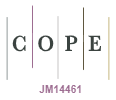What do we understand by human formation when it comes to the education of students in high school?
DOI:
https://doi.org/10.5585/eccos.n67.25529Keywords:
contenidos cognitivos formativos, escuela secundaria, formación humanaAbstract
Here we seek some answer to the question posed in the title, which indicates that it is about training, or possibly training elements, within the scope of school education and high school. It is indicated that there is a possible contribution to the training of young people in high school that occurs in the provision of training content that helps them in the development of their subjective dimension, which requires the development of sensibilities that constitute it, such as those indicated in the text. through the provision of cognitive content capable of assisting them in the development of these sensibilities which, in turn, are necessary for the development of their subjectivities. As it is offered within the scope of school education, it involves several aspects, but has a special emphasis on cognitive aspects. Hence the call for attention to them and the repeated insistence that it is not just about offering information, which is also necessary, but, at the same time, offering educational help so that students can personally develop their knowledge with them, which is an important part , not enough, of the training content they need. This training deserves the greatest possible care, combined with the necessary new care with the training of educators who propose to offer educational help to these young people.
Downloads
References
CHAUÍ, Marilena. Convite à Filosofia. 13 ed. São Paulo: Ed. Ática, 2003
DAMÁSIO, Antônio. O mistério da consciência. (2000). São Paulo: Companhia das Letras, 2000
FREIRE, Paulo. Educação com prática da liberdade. São Paulo: Paz e Terra, 1975,
FREIRE, Paulo, FAUNDEZ, Antonio. Por uma Pedagogia da Pergunta. Rio de Janeiro: Paz e Terra, 1985.
FREIRE, Paulo. Pedagogia da Autonomia: saberes necessários à prática educativa. 39ª ed. São Paulo, Paz e Terra, 2009 (Edição especial 1.000.000 de exemplares).
KANT, Immanuel. Sobre a pedagogia. Trad. Francisco Cock Fontanella. Piracicaba, SP: Editora Unimep, 1996.
KANT, Immanuel O que é a ilustração? In: KANT, Immanuel. Textos Seletos, Petrópolis: Vozes, p.63 ss.
MARX, K. e ENGELS, F. A ideologia alemã. [I- Feurbach]. 2ª ed. Trad. José Carlos Bruni e Marco Aurélio Nogueira. São Paulo: Livraria Editora Ciências Humanas, 1979.
SAVATER, Fernando. O valor de educar. Trad. Mônica Stahel. São Paulo: Martins Fontes, 1998.
SEVERINO, Antônio Joaquim. A contribuição da Filosofia para a Educação. Em Aberto. Brasília, ano 9, n. 45, p. 19-25, jan. mar. 1990.
SEVERINO, Antônio Joaquim. Educação, sujeito e história. São Paulo: Olho d’Água, 2001.
SEVERINO, Antônio Joaquim. A filosofia na formação do jovem e a ressignificação de sua experiência existencial. In: KHOAN, W. Ensino de filosofia: perspectivas. Belo Horizonte: Autêntica, 2002.
SEVERINO, Antônio Joaquim Filosofia no Ensino Médio. São Paulo: Cortez, 2014.
Downloads
Published
How to Cite
Issue
Section
License
Copyright (c) 2023 Marcos Antônio Lorieri

This work is licensed under a Creative Commons Attribution-NonCommercial-ShareAlike 4.0 International License.






